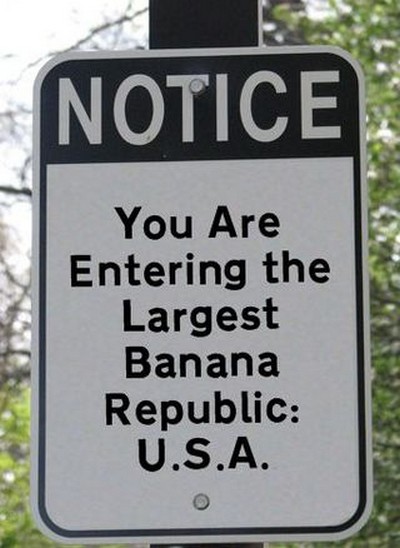 NYTimes | The richest 1 percent of Americans now take home almost 24 percent of income, up from almost 9 percent in 1976. As Timothy Noah of Slate noted in an excellent series on inequality, the United States now arguably has a more unequal distribution of wealth than traditional banana republics like Nicaragua, Venezuela and Guyana.
NYTimes | The richest 1 percent of Americans now take home almost 24 percent of income, up from almost 9 percent in 1976. As Timothy Noah of Slate noted in an excellent series on inequality, the United States now arguably has a more unequal distribution of wealth than traditional banana republics like Nicaragua, Venezuela and Guyana. In the past, many of us acquiesced in discomfiting levels of inequality because we perceived a tradeoff between equity and economic growth. But there’s evidence that the levels of inequality we’ve now reached may actually suppress growth. A drop of inequality lubricates economic growth, but too much may gum it up.
Robert H. Frank of Cornell University, Adam Seth Levine of Vanderbilt University, and Oege Dijk of the European University Institute recently wrote a fascinating paper suggesting that inequality leads to more financial distress. They looked at census data for the 50 states and the 100 most populous counties in America, and found that places where inequality increased the most also endured the greatest surges in bankruptcies.
Here’s their explanation: When inequality rises, the richest rake in their winnings and buy even bigger mansions and fancier cars. Those a notch below then try to catch up, and end up depleting their savings or taking on more debt, making a financial crisis more likely.
Another consequence the scholars found: Rising inequality also led to more divorces, presumably a byproduct of the strains of financial distress. Maybe I’m overly sentimental or romantic, but that pierces me. It’s a reminder that inequality isn’t just an economic issue but also a question of human dignity and happiness.
Mounting evidence suggests that losing a job or a home can rock our identity and savage our self-esteem. Forced moves wrench families from their schools and support networks.
In short, inequality leaves people on the lower rungs feeling like hamsters on a wheel spinning ever faster, without hope or escape.
Economic polarization also shatters our sense of national union and common purpose, fostering political polarization as well.
So in this postelection landscape, let’s not aggravate income gaps that already would make a Latin American caudillo proud. To me, we’ve reached a banana republic point where our inequality has become both economically unhealthy and morally repugnant.


0 comments:
Post a Comment